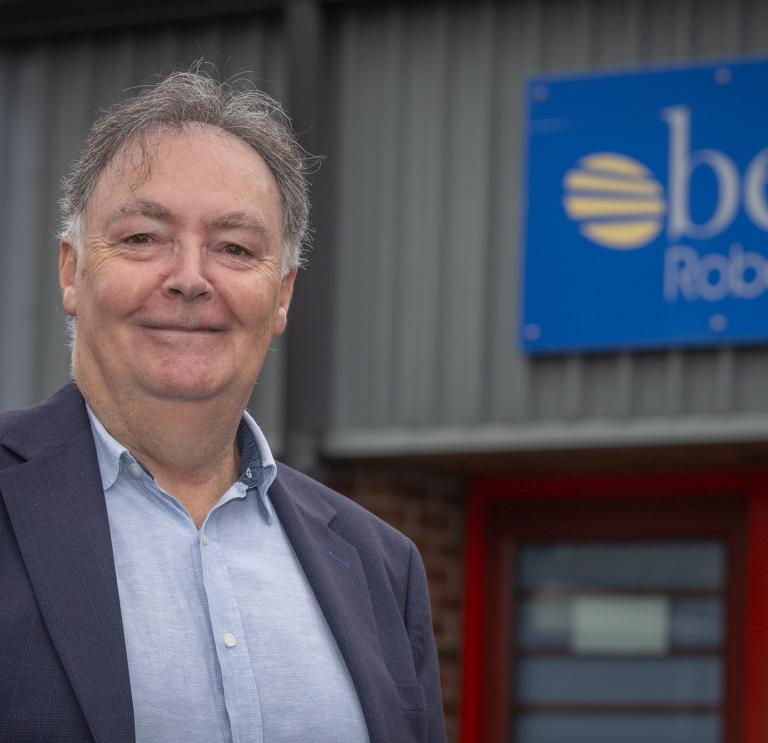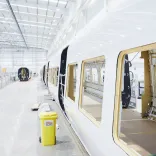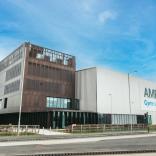North Wales manufacturer Bee Robotics has made a name for itself as a global leader in the field of advanced liquid handling solutions for laboratory automation.
The company, which is based in Caernarfon, designs and manufactures bespoke robotic instruments that analyse and process liquid samples in the biotech industry. Its products are used worldwide to support fields including allergy and tuberculosis testing, DNA analysis, HIV, HPV and more.
Initially founded in Bangor in 1999 by Steve Jones and Alwyn Morus, Bee Robotics moved to Caernarfon in 2001 and exporting has been at the heart of its expansion strategy since the beginning. Today, exports account for 95% of its trade, equating to £1.1m in turnover, with a client base spanning Europe, Asia, the US and, most recently, the Middle East.
With a rapidly growing allergy market, projected to reach $500 million by 2030, Bee Robotics has set its sights on increasing exports to the Middle East as a route to business growth.
The company has just entered the market for the first time after appointing a new distributor in the region who will distribute its products to private laboratories throughout the Middle East. The partnership followed Bee Robotics meeting representatives from the region at MEDICA, one of the world’s largest medical trade exhibitions, which it has attended annually over a number years with Welsh Government support.
It also intends to continue building on its existing foothold in Germany, one of its primary markets. The business is currently developing a bespoke new instrument for a leading German diagnostic kits supplier - a project being supported with a Welsh Government SMART Flexible Innovation Support grant. The instrument will support the automation of DNA extraction and mutation detection for laboratories across Europe, with plans to roll this out across Asia too.
Bee Robotics attributes a key part of its international success to the strength of Wales’ life sciences sector and to the talented workforce available in the region.
The company is a member of the Welsh Government’s ‘High Value Manufacturing Export Cluster Programme’ which brings together companies from across the industry to learn from one another, share best practice and receive expert export advice to jointly develop export capabilities. Bee Robotics is one of over 5,000 companies operating in Wales’ thriving high value manufacturing sector, which employs more than 150,000 people.
The firm also benefits from Wales’ central Life Sciences Hub – a national organisation that works to support and connect partners across health, social care, industry, academia and the third sector, to facilitate the development and adoption of life science innovation in health and social care. As well as bringing organisations together, Life Sciences Hub Wales also provides talks on industry topics and offers tailored help and guidance, which Bee Robotics has utilised.
The company sees its closely proximity to Bangor University as another benefit, having recruited a number of graduates from the institution, notably those studying product design and software engineering courses. Supporting the next generation of talent is important to Bee Robotics, with the business offering work experience placements to students from local schools and colleges.
Steve Jones, Managing Director at Bee Robotics, said: “Since it was first founded over 20 years ago, Bee Robotics has grown significantly to become a global name and it’s amazing to see our products sold all over the world.
“There’s a big biotechnology community in Wales with many successful companies operating in the sector, so it’s great to be a part of that. As an instrumentation manufacturer, being close to Bangor University is really helpful for our recruitment, providing us with access to a steady stream of skilled graduates with relevant degrees.
“Our location also offers a great work life balance, with good employment opportunities, wonderful outdoor landscapes to enjoy, and a lower cost of living than other areas. At the same time, we’re only two hours away from Manchester airport and close to Holyhead port, which has direct links to Ireland.”




